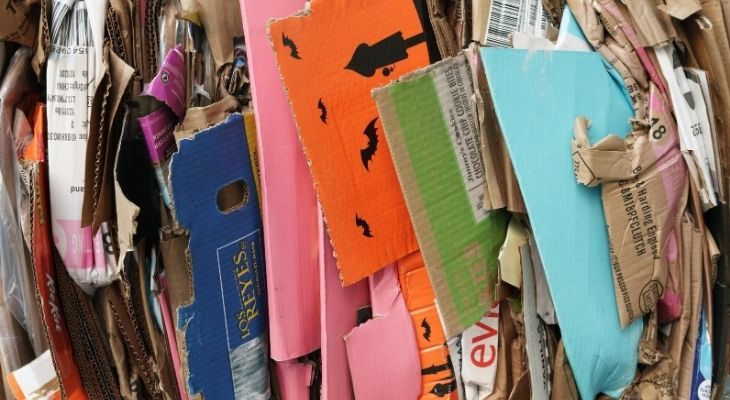Experts weigh in on the future of recycling
A recent survey was conducted by the NSW Government on recycling and plastic waste. With findings set to be released later this year, academics talk on the research into recycling, the work on advanced waste conversion technologies and the future of recycling.
The Times Higher Education Impact Rankings recently placed the University of Sydney first in Australia and second globally, with the rankings focusing on protecting the environment through processes such as recycling, whilst pulling attention to inequality through sustainable development.
Plastic use on the rise amid greater awareness
“Our landfills, landscapes and waterways are choking with plastic. Despite recent ‘plastic-free’ campaigns, global demand for plastic is on the rise, and nationally our plastic recycling rates are below 10 percent” says Dr Lisa Heinze from the Department of Gender and Cultural Studies and the Sydney Environment Institute.
She continues that although public awareness on the matter of plastic waste has grown, consumption of the material has not dropped, welcoming the survey to include considerations of the types of plastics that may be phased out in both the short and long-term.
“Addressing the environmental and health concerns associated with plastics will depend on all of us – individuals, institutions and governments – working together and alongside industry toward a truly petroleum based plastic-free future” she says.
‘Single digit’ percentages still for recycling
Ashley Brinson, Executive Director of The Warren Centre, offers that the solution to this issue lies in engineers looking at phasing out single-use plastic and packaging, as opposed to dealing with plastic use through recycling.
“Forward-looking engineers are working to design the problems out of short life cycle consumer products and wasteful single-use plastic packaging rather than merely apply end-of-the-pipe waste disposal and recycling”, he commented.
Brinson also highlights the use of ‘downcycling’, a process which occurs when recycling creates a material lower in quality and functionality, as compared to the original products.
“After 70 years of modern plastics, most economies still only achieve single digit percentages of plastics recycling, and downcycling cannot cope with enormous volumes of disused plastic” says Brinson.
A priority for all Goverment – reducing plastic waste
As an expert in the conversion of plastic materials and circular economy – the economic system aimed at the continual waste of resources and eliminating waste – Professor Ali Abbas of the School of Chemical and Biomecular Engineering calls on Governement to help with the issue.
“A key priority for all levels of government today is reducing plastic waste. A significant move towards addressing the challenge of plastic waste – and waste in general – was recently made by introduction of the circular economy policy in NSW” said the professor. “This policy aims to facilitate as much recycling as possible, as well as minimise waste”.
Measuring the Circular Economy
Abbas continues “Although we have done a great job in Australia on recycling, to realise the full potential of the circular economy, we need to measure the recycling potential of individual products and track their pathways and reuse in the economy”.
He emphasises the need to move beyond traditional methods in recycling and expand the technology, to cater to the those recycling processes that aren’t able to efficiently deal with difficult wastes. He also pulls focus to remember the importance of reuse, repurposing and remanufacturing.
The role of technologies in plastic recycling
Professor Ali Abbas suggests a system-wide analysis plastic waste,with the aim to evaluate the use of sustainable technologies, such as waste-to-energy recovery, in plastic value-chains.
“Waste-to-energy recovers energy from non-recyclable plastic and other materials that otherwise would end up in landfill. This is a mature technology and is safely applied around the world, particularly in places where environmental monitoring and regulation can be implemented stringently” he says.
Resource opportunity in plastic waste
Having commercialised a new industrial process with his start-up Licella, Professor Thomas Maschmeyer from the School of Chemistry and Sydney Nano Institute, recognises the serious environmental issue that is plastic waste, however also sees it as a great resource opportunity.
The company’s Catalytic Hydrothermal Upgrading (Cat-HTR) process chemically recycles plastic waste and turns it into new products. “The wate-based Cat-HTR process that I co-invented through my start-up, coverts plastics into liquid (oil) and gas with world-record 98 percent efficiency” he explains.
The new process can refine the oil into new products, such as chemicals, plastics and fuels, and uses the gas to run the conversion plant. So what does this mean? It means that only electricity to run control systems and the waste feed system is all this needed, with no other external energy input required.
“This technology will unlock the chemical recycling of plastics in an unprecedented way” says Thomas.
-
Subscribe to the latest industry news, insights and AWRE updates.
- Subscribe



